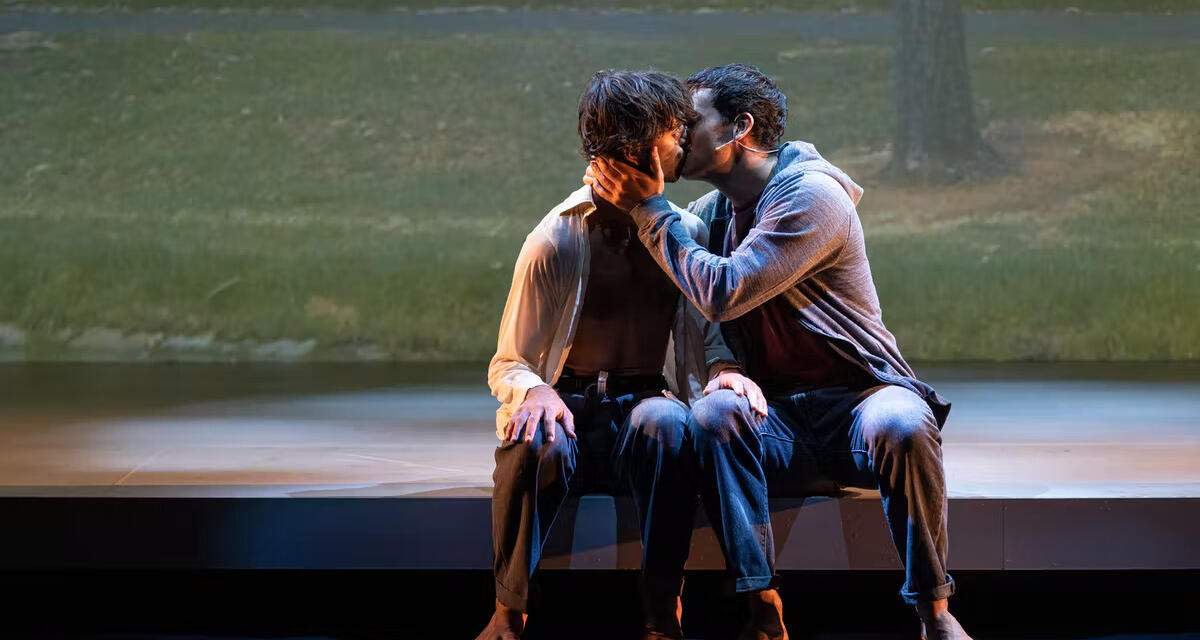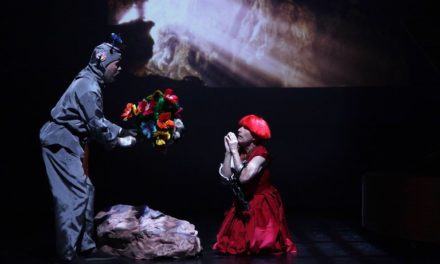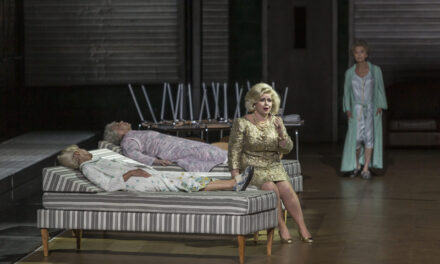Review: Watershed: The Death of Dr. Duncan, directed by Neil Armfield for the Adelaide Festival.
50 years ago this May, Dr. George Ian Ogilvie Duncan, a law lecturer at the University of Adelaide, was assaulted by a group of men and thrown into the River Torrens. He drowned.
Dr. Duncan was attacked at a well-known gay “beat”: a place where men gathered to meet and have sex. In an era when even private sexual acts between two men were illegal, such beats were the only place for many to experience intimate contact with other men.
Though three police officers from the city’s vice squad were widely believed to have been involved in the murder, no one was convicted. As the lyrics in this new production proclaim:
Your murderers walk through the world
[They] sleep through the night without shame.
In the wake of Dr. Duncan’s death, public outcry eventually led to legal change. In 1975 South Australia became the first state to decriminalize male homosexual acts.
The complex historical, political and social context around Dr. Duncan’s death requires a suitably focused dramatic vehicle. Wisely, the musical form chosen was not opera or the musical, but the oratorio.
Traditionally associated with sacred content such as the Passion of Christ, an oratorio is a musical oration, unique in its capacity to mourn, proclaim and celebrate what comes from tragic loss.
One of the many triumphs of this production is its showing how this older form can tell a serious contemporary story using a range of musical styles while evoking a wide range of emotions.
This extraordinary collaboration between composer Joe Twist and co-lyricists Alana Valentine and Christos Tsiolkas, with set and costumes by Ailsa Paterson and choreography by Lewis Major, is superbly and sensitively staged by director Neil Armfield.
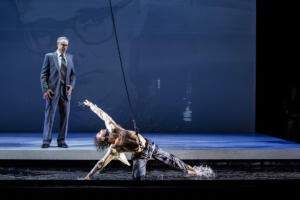
Watershed is a sensitively staged production. Adelaide Festival/Andrew Beveridge
18 singers from the Adelaide Chamber Singers guide the audience through the story of Dr. Duncan while evoking an era in which “coming out” becomes possible for greater numbers.
Two principal singers, Mark Oates and Pelham Andrews, deftly take on character voices that include Duncan, former South Australian premier Don Dunstan, and a police officer, lawyer and whistle-blowing officer Mick O’Shea. Ainsley Melham enacts the Lost Boy, movingly guiding us through the work’s emotional heart.
The work opens with a dancer (Mason Kelly) in a body harness falling in slow motion from the top of the stage into a pool of water. A kind of solemn horror is evoked, as the last moments of Dr. Duncan’s life are evoked in a highly aestheticized way.
Truth in the lyrics
The lyrics draw from historian Tim Reeves’ research into Dr. Duncan’s death, the initial police and Scotland Yard investigation, and the later trial and acquittal of two of the officers in 1988.
Valentine and Tsiolkas’s words evoke the emotions of time and place, and — early in the work — the dangerous world of furtive cruising.
One stands under the bridge and smokes his cigarette.
A golden-haired student walks into the toilet block.
Glancing neither left nor right / he slips into the night.
We are reminded that others were dumped into the river as well. This is a world in which gay men are bashed for sport:
We thought faggots floated.
It was just a drunken lark.
Music and lyrics express the view that many did not see gay lives as worthy.
They’re legitimate prey.
The broader story is also one of class, as it took the murder of a university lecturer to evoke the outrage of Adelaide’s society mothers:
Surely we draw the line at murder for sport.
Surely we draw the line at police brutality.
At times the music takes on a liturgical quality, as in a mass, while at others, it opens into a raucous, celebratory mode, as when the 1975 legal victory decriminalizing homosexual male sex is proclaimed. Lyrics capture the spirit of release from emotional and psychological bondage that many of us who came out in the 70s felt:
I’m overwhelmed in disbelief […] a criminal no more.
A sensational work
Under the musical direction of Christie Anderson, the small orchestra of strings, keyboard and percussion at times creates a big, oversized sound, generating the beating heart of the work.
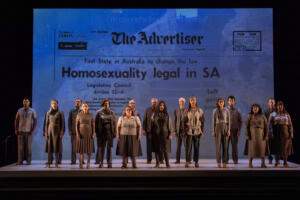
This new work is the result of a hugely successful collaboration. Adelaide Festival/Andrew Beveridge
Watershed’s success in capturing a time and place, in storytelling through song, is ultimately due to a hugely successful collaboration between diverse creative artists committed to serving the whole.
A new work as seamless as this requires discarding many “good ideas,” trusting that better ones will follow. This is a hard task, one that requires considerable generosity of spirit.
This is a truly sensational and — dare I say — important work, one that will hopefully see many future productions.
Season closed.
This article was originally published by The Conversation (https://theconversation.com/us). Reposted with permission. Read the original article.
This post was written by the author in their personal capacity.The opinions expressed in this article are the author’s own and do not reflect the view of The Theatre Times, their staff or collaborators.
This post was written by William Peterson.
The views expressed here belong to the author and do not necessarily reflect our views and opinions.

